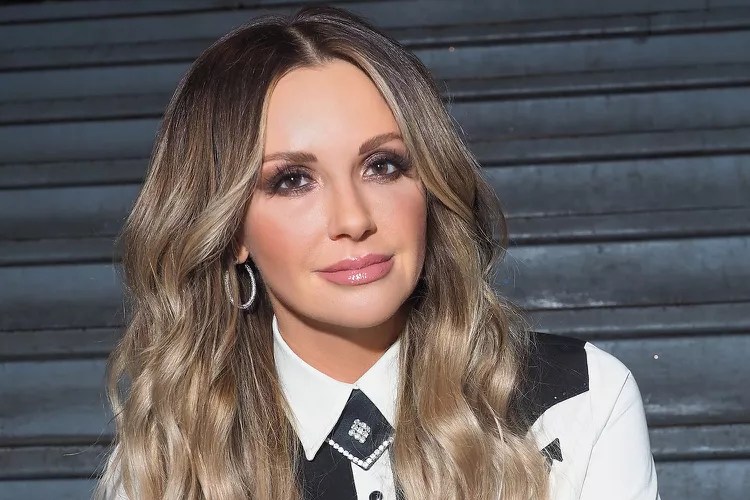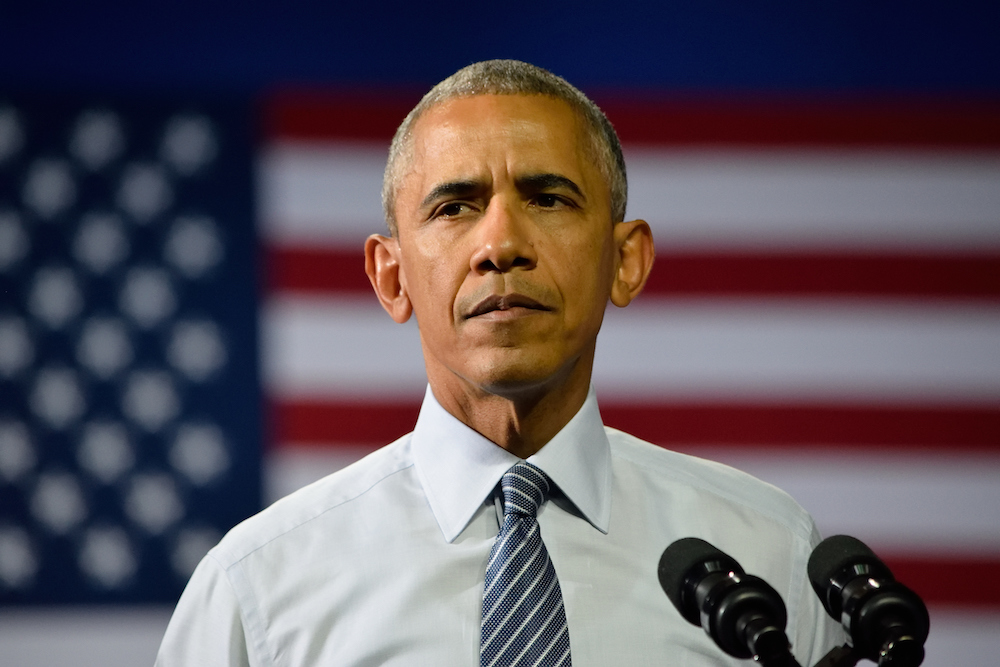Bad news for over 1 MILLION Indians as new US President Donald Trump set to bring new law, to curtail…
Indians get the short end of the stick when it comes to allotment of green cards – many working in the US on H-1B visas are caught in a decades-long backlog.
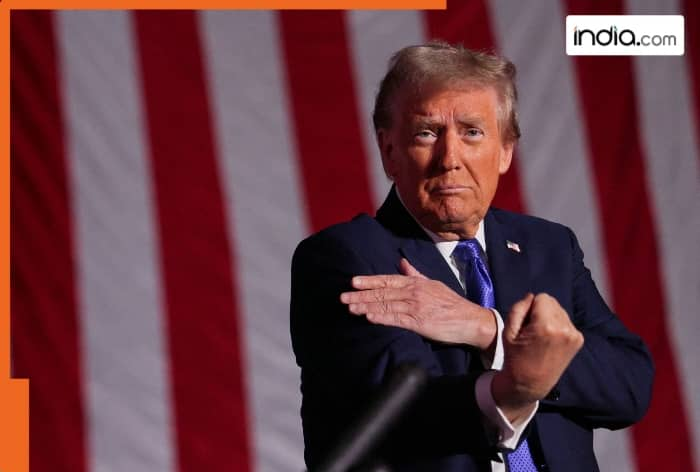
US Presidential Election Results 2024: Republican Donald Trump has defeated Vice President Kamala Harris. With crucial projections from Alaska and Wisconsin, Donald Trump now has 279 electoral votes, while Kamala Harris stands at 223. Trump, who is likely to be the incoming President of the United States of America (USA), is expected to end automatic citizenship for children. The plan is to sign an executive order to this effect on Day 1 itself. This has been posted on the official Trump-Vance campaign site.
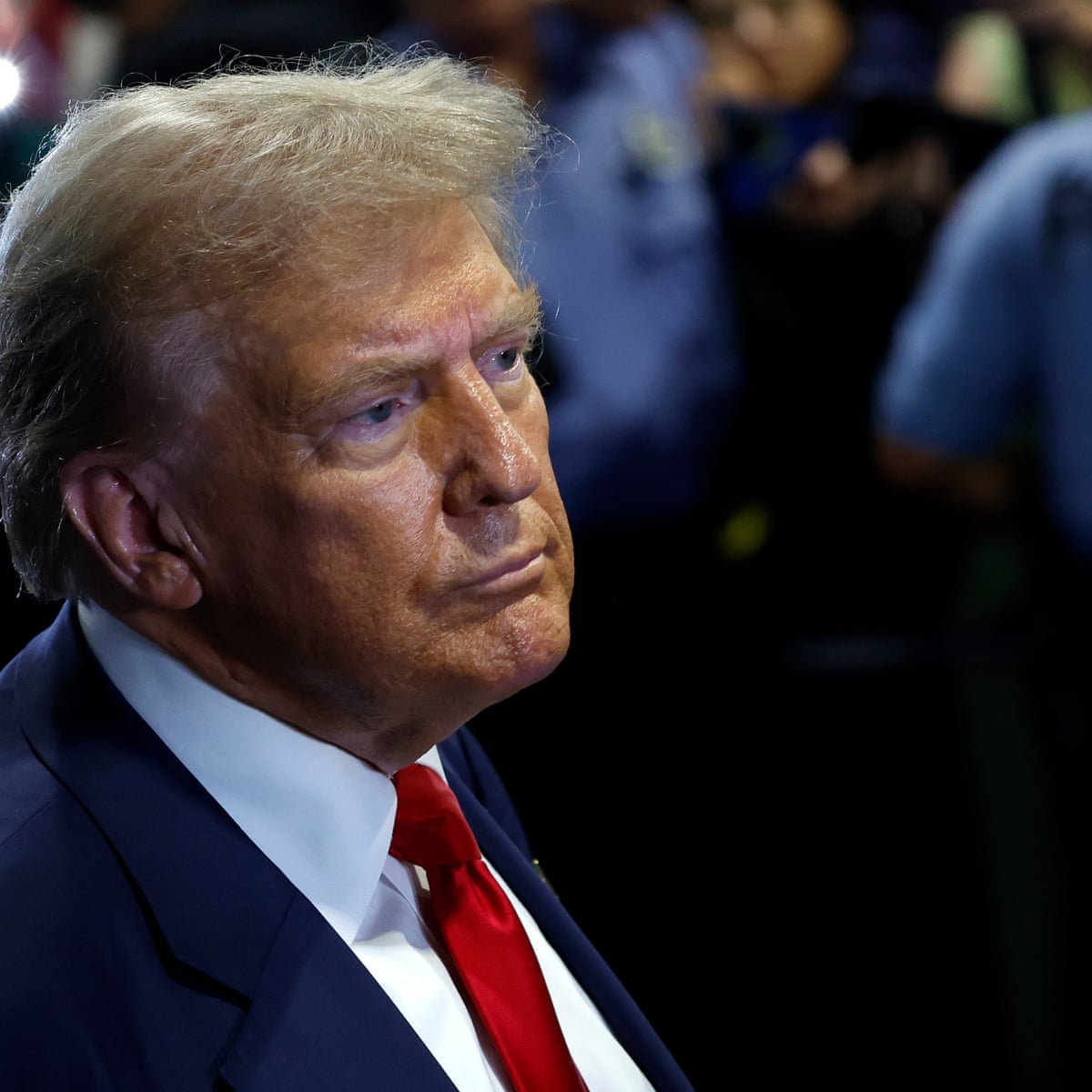
The draft executive order reads, “It will direct federal agencies to require that at least one parent be a US citizen or lawful permanent resident for their future children to become automatic US citizens.” This means that the automatic citizenship for children will not end just for children born to illegal immigrants. It will go way beyond.
The draft executive order claims to correctly interpret the 14th Amendment of the U.S. Constitution, but immigration advocates disagree, arguing that if enacted, the order will face legal challenges in court.
Talking exclusively to the Times of India, Rajiv S. Khanna, immigration attorney said, “The Trump plan suggests no automatic citizenship for children born in the US. This is almost certainly a contravention of the 14th Amendment of the US Constitution. A Supreme Court judgement is available to counter Trump’s misinterpretation. “
Greg Siskind, immigration attorney, told TOI, “This will certainly be litigated as it violates the 14th Amendment. We will have to see if they go so far as to exclude children of people legally in the US”
If it passes, it will be a huge setback for the Indian diaspora. According to an analysis of the US Census (2022) done by Pew Research, the US was home to about 4.8 Indian Americans, of whom 34%, or 1.6 million, were born in the US.

If this executive order is passed, going forward, children born to Indian couples, neither of whom is a US citizen or a green card holder (permanent resident) will not be eligible for automatic citizenship.
Indians get the short end of the stick when it comes to allotment of green cards – many working in the US on H-1B visas are caught in a decades-long backlog.
Green cards which are employment-based, the annual cap is set at 140,000, along with any unused family-sponsored green cards that may be reallocated to this category.
Regardless of whether green cards are employment- or family-based, no single country can receive more than seven percent of the total. This limitation significantly affects Indian applicants in the employment-based category.
Donald Trump has promised a closed border and mass deportations. Those affected are taking action now
Immigrants, their employers and groups that work with them are already taking action ahead of President-elect Donald Trump’s second term, in which he has promised to deport millions of people.
Some fear how the new administration could impact their families, while others are hopeful the plans — if they materialize — will make things better.
Trump allies are discussing deportation and detention options, with tackling the US-Mexico border seen as a priority from Day 1. And removing undocumented immigrants who have committed crimes is likely to be an early focus, a source familiar with the team’s preliminary plans told CNN.
But advocates fear deportation plans will soon reach deeper into American communities, targeting people who they say have a right to live here.
The League of United Latin American Citizens, the oldest Hispanic civil rights organization in the United States, is securing money and lawyers to fight what it is already calling potential “vicious, malevolent, cruel and ruthless” immigration policies.
“Make no mistake: Mass deportations will harm the millions targeted by Donald Trump, the families and communities they are part of — and every person in our country. They will rip parents from their children, destroy businesses and livelihoods, and devastate the fabric of our nation and our economy,” said Juan Proaño, CEO of LULAC.
A lawyer with the American Civil Liberties Union says its planning for legal challenges is already well advanced.
“We have been preparing for a second Trump term for nearly a year, with a focus on the most draconian possible policies, including the threat to use the military for deportation, which is flatly illegal,” said Lee Gelernt, an ACLU attorney who argued many of the most high-profile cases during Trump’s first term.
The National Immigrant Justice Center said its lawyers were ready, too.
“We will continue our work of providing critical legal representation to immigrants and refugees, fighting to keep families together, defending access to asylum, and advocating for the end of arbitrary detention and unjust deportation,” Mary Meg McCarthy, the center’s executive director, said in a statement.
‘What happens now?’
Cesar Espinosa, a leader in Houston’s Hispanic community, said he’s had many calls and messages from worried people since Trump won reelection early Wednesday.
“We can feel the sense of uncertainty from a lot of people. A lot of people are asking, ‘What happens now? What do we do?’” he said.
Some are in so-called mixed status families made up of US citizens and undocumented immigrants. And the fear is that non citizens will be targeted immediately, said Espinosa, who is a legal permanent resident, or “green card” holder.
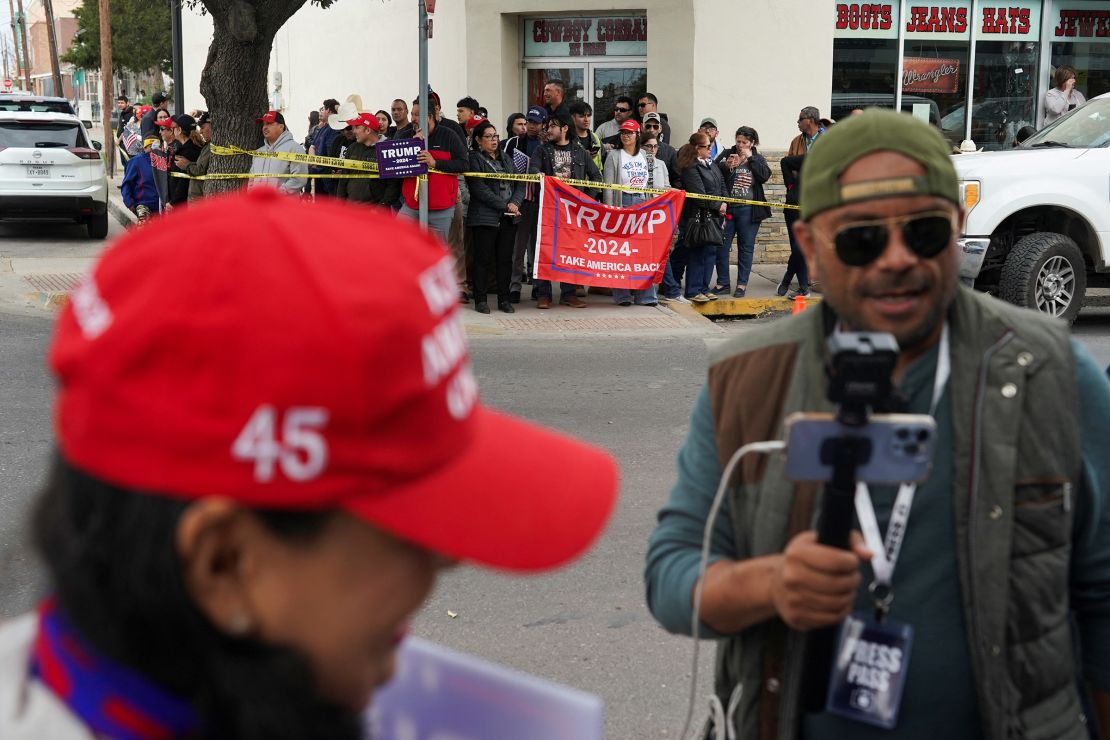
Go Nakamura/Reuters
He says he tries to calm fears by saying that mass deportations, particularly of non-criminals, will take time. Meanwhile, he keeps count of the time when he can apply for US naturalization, still more than two years away.
Espinosa said machismo among Latino men may have contributed to support for Trump.
“Unfortunately, a lot of people in the Latino community have bought into the rhetoric of being anti-immigrant, even the immigrants themselves,” he said.
Jorge Rivas’ support for Trump is obvious. He features a MAGA burger on the menu at Sammy’s Mexican Grill, in Catalina, Arizona, north of Tucson, the restaurant he runs with his wife, Betty.
Rivas, born in El Salvador, was granted asylum at age 17, he says, and sees little connection between his life as an immigrant and those at the top of Trump’s potential deportation list.
“If they let in hundreds or thousands of people who already have criminal records, if deporting them creates a mass deportation, I’m all for it,” he said.
He does not think the action will extend to law-abiding workers.
“That wouldn’t be fair,” he said. “They need to make sure that they don’t throw away, they don’t kick out, they don’t deport people that are family oriented.”
Advocates mobilize
In California, where farmers are reliant on migrant labor, there is a renewed call for immigration reform to allow people into the US for temporary agricultural work. There are also calls for legal status for the current workforce.
“We must focus on easing the chronic employee shortages on California farms and ranches and reducing the barriers to employment,” California Farm Bureau President Shannon Douglass said in a statement to CNN.

Mario Tama/Getty Images
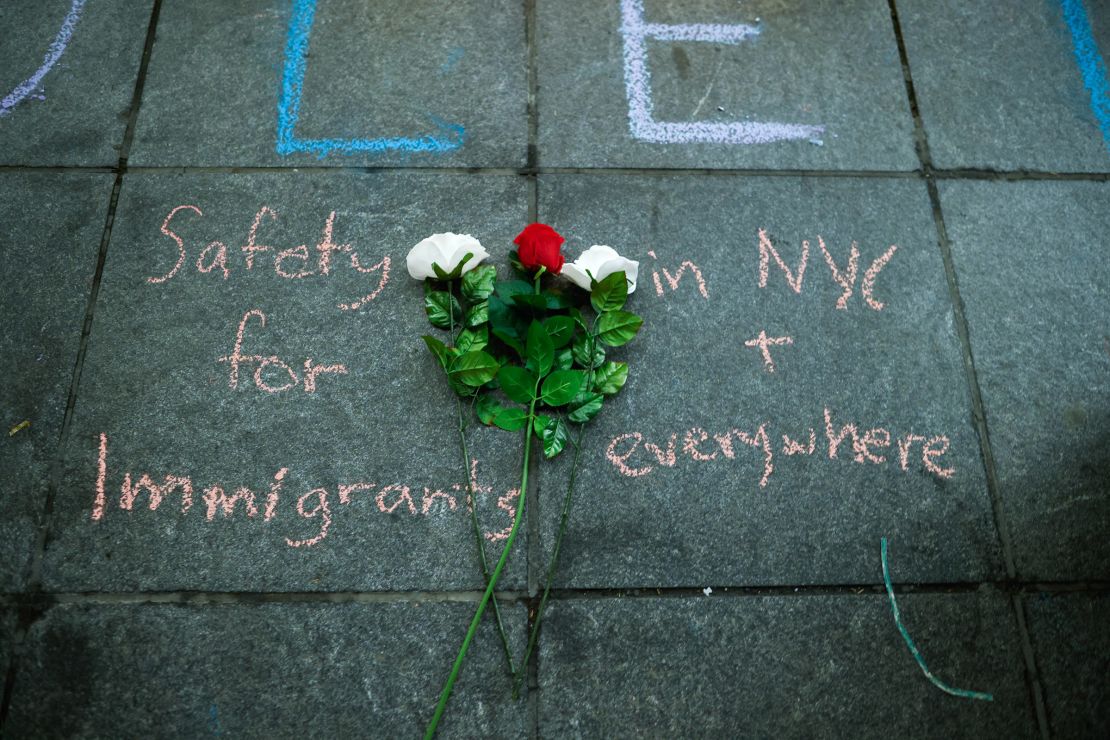
In the urban heart of New York City, where thousands of migrants and asylum seekers have stretched local resources, some houses of worship are preparing to shift their missions.
“The faith community has been mobilized for more than two and a half years in kind of an emergency capacity,” said the Rev. Chloe Breyer, executive director of the Interfaith Center of New York, a religiously diverse non-profit agency. “The challenge was not specifically deportation, as it is now, the challenge was the feeding, the housing and the welcome of enormous numbers of people.”
She said there was a biweekly call of about 60 churches, mosques and synagogues involved in welcoming migrants that could be pivoted. “That’s the network that will be mobilized when it comes to fighting any sort of more extreme measures such as deportation.”
A day after the election, New York City officials said fear was premature when they addressed immigration and how they would work with the incoming Trump administration.
The city has sanctuary laws that prevent local authorities from contacting federal immigration officers if they come across a migrant without permission to be in the US. Some in Mayor Eric Adams’ administration have said they want the laws amended to not include those who commit violent crimes, but for now any city-federal cooperation is limited.
“We’re working with all of the agencies that interact with immigrant communities to make sure that they understand what our sanctuary laws are and what they are expected to follow,” said Manuel Castro, the mayor’s commissioner for immigrant affairs. While the laws are in place, he said, anxiety and fear for immigrant communities is rooted in misinformation and even hate crimes.
But Murad Awawdeh, president of the New York Immigration Coalition, warned that sanctuary laws won’t stop federal immigration agencies from doing what they want.
“Sanctuary laws don’t stop federal agencies. They just don’t allow the city and state to participate,” Awawdeh said. “They’ve never been a firewall.”
Federal enforcement
Officials in US Customs and Border Protection and US Immigration and Customs Enforcement, two agencies under the Department of Homeland Security, are not commenting on any potential new policies or preparations. Both would be central to any deportation plan, but top leadership will not change until the second Trump administration begins its work on January 20.

Adrees Latif/Reuters

Jose Luis Gonzalez/Reuters
At both the northern and southern borders, apprehensions of those who have crossed illegally continue to be low in 2024, with a seven-day average of 1,700 a day, according to a law enforcement source familiar with the government data. The busiest sector was San Diego, with 350 people detained on Tuesday.
At some points in December 2023, migrant apprehensions exceeded 10,000 per day on the US southern border.
The day after the election, Jim Desmond, a member of the San Diego County Board of Supervisors, posted a picture of himself and Vice President-elect JD Vance at the border wall, saying he was looking forward to securing it. Earlier this year, Desmond testified before Congress that federal policies had meant “our Border Patrol has been reduced to processing agents, standing by, watching people break our laws.”
Kenia Zamarripa, of the San Diego Regional Chamber of Commerce, said many local businesses had ties across the border with companies, operations and workers and that an efficient and secure border should still facilitate trade and travel.
“It’s not just manufacturing, it’s not just tourism or retail, these are high-paying jobs and skilled workers that our businesses need to thrive,” she told CNN.
The tone was more defiant in Los Angeles, where the University of Southern California estimated last year there were more than 800,000 undocumented immigrants in LA county. Los Angeles Mayor Karen Bass told CNN: “The immigrant community is the heart of our city and in the face of threats and fear, Los Angeles will stand together. No one should live in fear due to their immigration status. We will continue to support local and state policies that protect immigrants and provide vital resources.”
She added: “My message is simple: No matter where you were born, how you came to this country, Los Angeles will stand with you and this will not change.”
The Los Angeles Unified School District — the second largest in the nation behind New York City — said it was bracing for a potential threat of legal action against students and their families that could lead to separation or deportation. It added that it would not enter into agreements with government agencies for the enforcement of federal immigration law unless required by law.
“Immigration enforcement activities around schools create hardships and barriers to health and educational attainment and cultivate a pervasive climate of fear, conflict, and stress that affects all students in our district, regardless of their background or immigration status,” a spokesperson for the district said in a statement sent to CNN.

Guillermo Arias/AFP/Getty Images
Across the border from San Diego in Tijuana, Mexico, about 3,400 people are waiting in migrant shelters, according to Jose Luis Perez Canchola, the city’s migration affairs director.
Many are hoping to enter the US legally using the CBP ONE app run by DHS to get an immigration appointment, but there are fears that the app could be impacted, he said.
“In the event of a mass cancellation of appointments and closing CBP ONE, what may happen is that many will decide to illegally cross the border before January 2025,” Perez Canchola said.
There is also concern in Piedras Negras, the Mexican city across the Rio Grande from Eagle Pass, Texas. “There’s fear and trepidation,” said Sister Isabel Turcios, director of the Frontera Digna shelter, where migrants were also using CBP ONE to get an appointment with an immigration officer.
“I try to calm them because the anxiety they’re feeling is very great,” she said.
CNN’s Priscilla Alvarez contributed to this story.
Why America and the world still need Donald Trump
Like it or not, amid a lack of credible alternatives, Trump offers change and, compared to Biden who represents the archaic establishment, a better chance of institutional and social reform
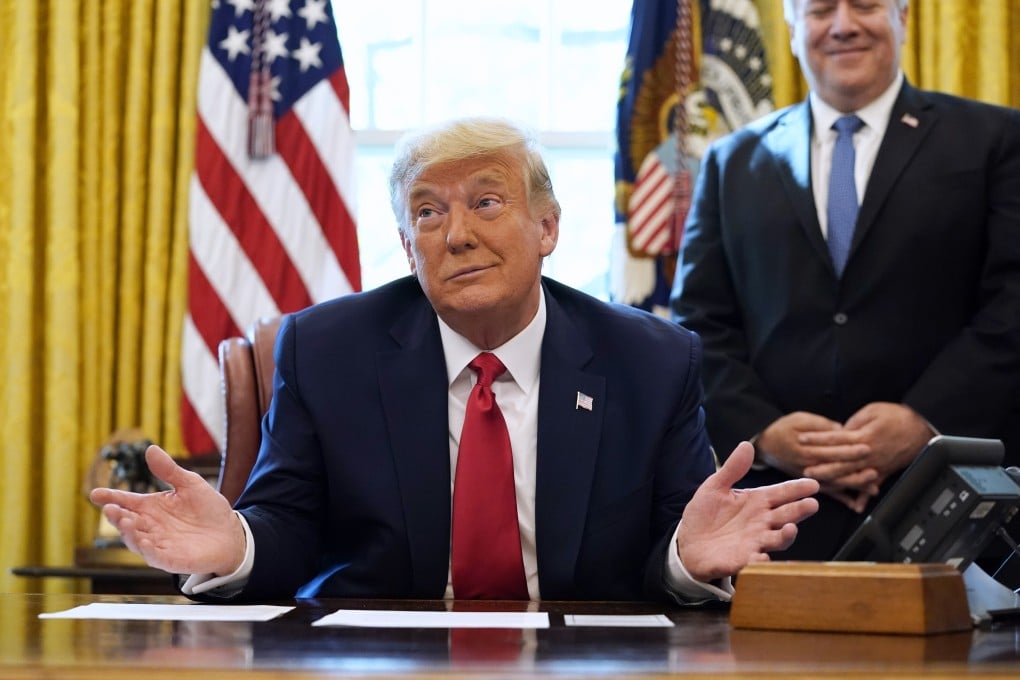
I am neither a Republican admirer nor a big fan of Donald Trump. His persona, full of narcissism and self-congratulation, is the antithesis of what I believe a head of state should be. I would say empathy, openness, virtue and the ability to control one’s impulses are key for any leader. Trump has shown none of these qualities. His only successes have been in foreign policy, lowering unemployment and tax reform.
So why on earth does world politics, and America, still need Trump as president? The answer lies in two parts: first, the workings of democracy and, second, the lack of an alternative.
In 2016, Trump received about 63 million votes. He represented the anti-establishment bloc: those who demanded more action, greater nationalism and change. Whether he has brought positive change may not be relevant. Then, as now, he represents change.
Trump won a democratic election in 2016. This means enough Americans identified with his personality and/or policies to decide he was fit to lead the country. While this may be, in part, due to populist anger, Trump’s presidency has made us universally reassess our views on institutionalism and democracy.

This brings us to the second fundamental issue with American politics: the lack of credible alternatives. Make no mistake, the 2020 US election is Donald Trump vs Donald Trump. US voters seem faced with a simple question: “Do you want Trump to remain in charge of America?” This is fundamentally wrong. It completely negates his opponent, the Democrat Joe Biden. Frankly, it could be anyone standing against Trump.
This election has become one about personality more than policy. The United States, and the world at large, need to understand the anti-establishment movement permeating world politics. From Brexit in Britain, to Jair Bolsonaro’s election in Brazil, there are huge misconceptions about public opinion. In the US, there seems to be consensus that ousting Trump will right a wrong. This may be short-sighted. Biden not only represents the archaic establishment but also illustrates the ultimate problem with politics, that personality seems to dictate much more than policy.
In this case, it is not Biden’s policies that are driving positive political change, but Trump’s polarising personality that is fuelling opinion and votes. Put simply, many are not voting for Biden to win; they are voting for Trump to lose.
While four more years of Trump may not unify the country or be popular, it may give Americans time to assess the institutional reforms needed to build an effective government, and find someone who truly represents change in modern America. If they vote for “sleepy Joe”, I fear America’s institutional and social reforms might sleep for a lot longer.
What the world thinks of Trump’s return to the US presidency
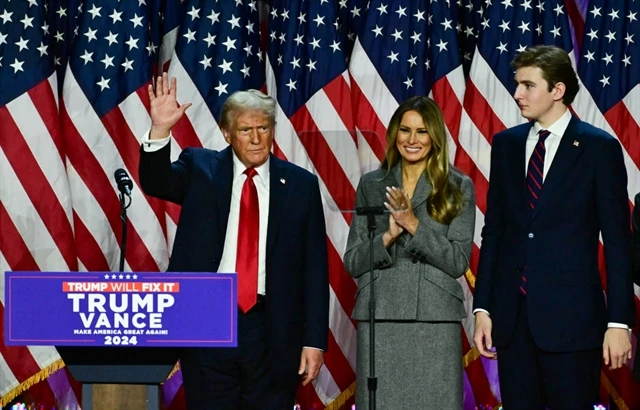
What happens in the United States doesn’t stay in the United States. The consequences of President-elect Donald Trump’s victory on Tuesday will radiate across the globe. To get on-the-ground insight into how people are reacting to the results of the 2024 US elections in different countries, we turned to our global network of staff and fellows. Embark on your world tour below.
Many Ukrainians see Trump’s victory as a risk to US support for Kyiv
KYIV—Prior to the US election, Ukrainians were anxiously contemplating the possibilities, fully aware that US assistance is indispensable for their country’s struggle against Russian aggression. Ukrainians were assessing each candidate on how strongly and consistently they would support Ukraine, if at all.
Many Ukrainians look at Trump with suspicion because of his well-known doubts about continuing assistance to Ukraine and especially because of his “peace plan” for ending the war, details of which were revealed by his running mate and severely criticized by Ukrainian media. Here in Ukraine, this plan is viewed as hostile to Ukraine’s national interests and playing into the hands of Russian President Vladimir Putin. There is also a fear that Trump will exert pressure on Ukrainian leadership to make major concessions to Russia to advance his “peace” initiative. So many Ukrainians perceive his election as posing a risk to continuing US support for Ukraine.

However, there is also a general understanding that Ukraine has no other choice but to work with the president chosen by American voters. Ukrainian President Volodymyr Zelenskyy indeed congratulated Trump for his election victory soon after it was called. He referred to Trump’s “peace through strength” approach as being able to contribute to a “just” peace in Ukraine.
It remains to be seen if Putin’s aggression and intransigence will have a sobering effect on Trump and lead him to reconsider his stance on the Russia-Ukraine war.
—Oleh Shamshur is a nonresident senior fellow at the Atlantic Council’s Eurasia Center and a former Ukrainian ambassador to the United States.
The second Trump presidency will be a “leap into the unknown” for Ukraine in its fight against Russia
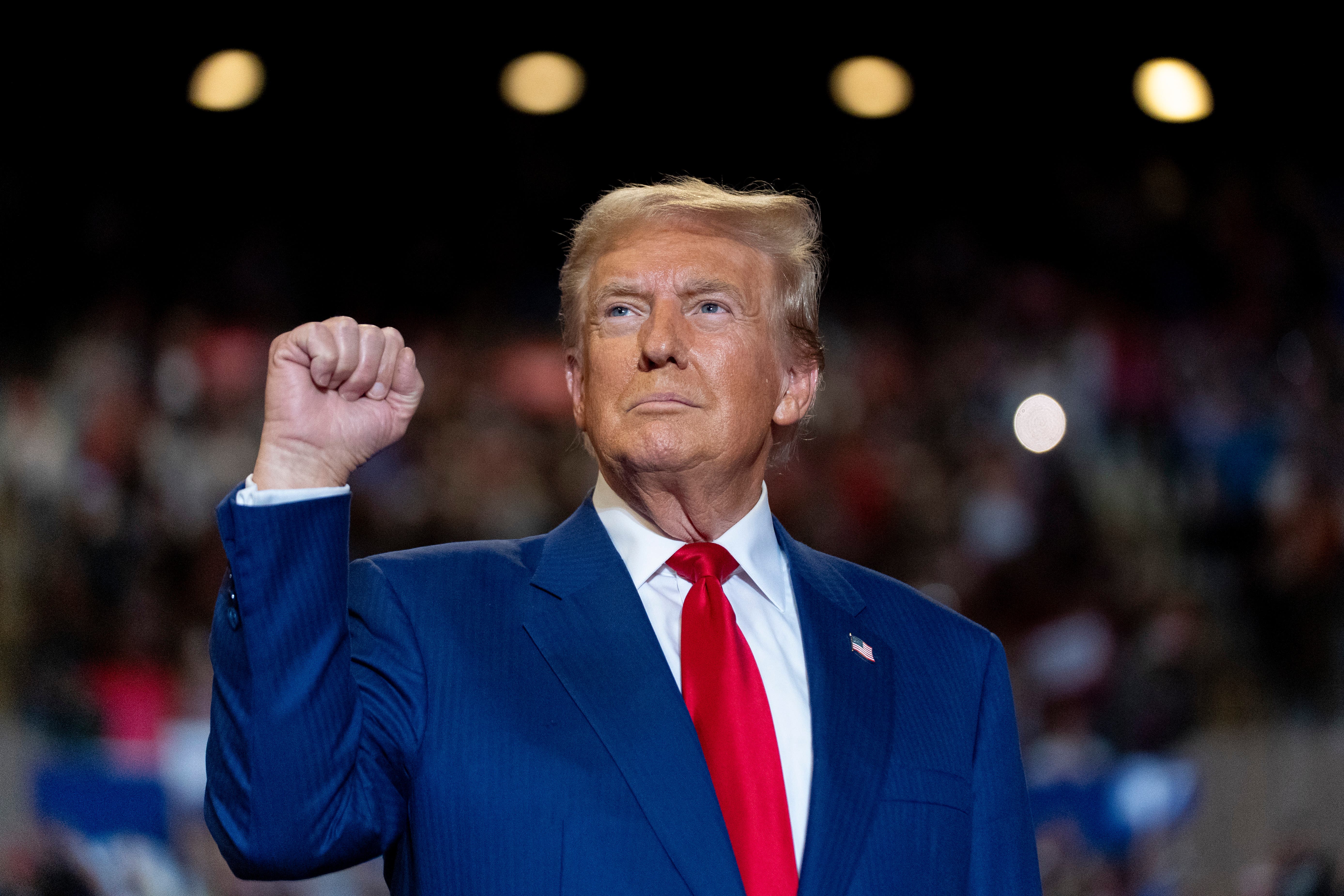
KYIV—There was an unmistakable sense of foreboding in Kyiv on the morning when Ukrainians woke to news of Trump’s election victory. The US president-elect has long been viewed by many in Ukraine as a somewhat unpredictable ally with a record of both backing Ukraine and publicly questioning US support for the country. There are now widespread concerns that once he returns to the White House, Trump may reduce or end military aid to Ukraine entirely. Some also fear that he could pressure the country’s leaders into an unfavorable peace deal that would reward Russia while leaving Ukraine in a perilous position.
Not all Ukrainians share this pessimistic perspective, with a significant number expressing hopes that Trump can reinvigorate international efforts to counter the Kremlin. Frustration has been mounting for some time over what is widely perceived as the Biden administration’s excessive caution in relation to the Russian invasion of Ukraine, which has translated into slow weapons deliveries and restrictions on Ukraine’s ability to defend itself. Some believe Trump will adopt a bolder stance toward Russia as he prepares to negotiate with Putin from a position of strength. They recognize that a second Trump presidency is a leap into the unknown and a huge gamble, but see this as preferable to slowly bleeding out as a result of the inadequate aid Ukraine has been receiving from the Biden White House.
—Peter Dickinson is editor of the Atlantic Council’s UkraineAlert service.
Is this an opportunity for Europe to “grow up” and be more independent?

BRUSSELS—Here, the “man on the street” and mainstream media are surprised but not shocked. However, many are clearly puzzled and somewhat worried about the return of the former president. There is almost zero understanding of the US political system and how the two-party system works, and all they know about Vice President Kamala Harris is that she is not Trump.
The political world (the European Commission, Council, and Parliament) is a totally different animal, and there was a barrage of “internal” meetings on the subject on Wednesday. On a lower level of the Brussels bureaucracy, Harris was the clear favorite. However, the higher up the ranks officials were, the more cautious they became. Officials I spoke with and who have European Commission President Ursula von der Leyen’s ear made it very clear: We might have had our personal preferences, but that doesn’t matter. They took a pragmatic, wait-and-see approach. Surprisingly enough, many were expecting a Harris defeat. There was no sign of taking sides publicly. The tone of von der Leyen’s friendly message of congratulations is indicative of this thinking: Europe has no choice but to work closely with the Trump administration. “We will not repeat Angela Merkel’s disastrous attitude toward Trump,” one official told me.
The issues that stand out in my conversations are Trump’s stance on support for Ukraine, the US relationship with Russia, US policy toward China, and transatlantic trade. Some said Trump’s return may be an opportunity for Europe to “grow up” and be a stronger, less dependent, and better ally to the United States. Finally, they know Trump is “transactional” and are trying to figure out what this actually means for the relationship.
Hungarian Prime Minister Viktor Orbán is an outlier: He took sides publicly and is now running victory laps, enjoying the probable windfalls of the gamble he took early on in support of Trump. The man on the street in Budapest and the remaining few independent or semi-independent media in the country are asking: We know what’s in it for Orbán, but what’s in it for Hungary?
—András Simonyi is a nonresident senior fellow with the Atlantic Council Global Energy Center. He is a former Hungarian ambassador to the United States and NATO.
Israeli politicians celebrate Trump’s victory, but should be careful what they wish for

JERUSALEM—The reactions of Israeli government officials after Trump’s election represent a sigh of relief.
Throughout the election campaign, it was clear that cabinet ministers, members of the coalition, and the prime minister himself supported Trump and hoped that he would “liberate” Israel from the constant pressure exerted on it by the current Democratic administration, a pressure that in their view was expected to continue if Harris were elected.
Now, in addition to the hope that US President Joe Biden’s time as a “lame duck” will pass without dramatic steps against Israel, it seems that the various parties in the coalition hope that the beginning of Trump’s term will allow them to fulfill their long-held desires. Mainly, that means the annexation of the Gaza Strip and the West Bank, and Israeli action against nuclear facilities in Iran.
But from the statements of Trump and those surrounding him, a completely different picture emerges. Trump strives to end the war and prioritizes the political—rather than military—path to tackle Iran’s nuclear program, while it seems that he is more committed to the Muslim population in the United States that supported him in the election campaign.
In light of this reality, and despite the hopes of ministers and maybe the prime minister, these gaps may lead to friction between the administrations in Jerusalem and Washington sooner than expected.
—Danny Citrinowicz is a nonresident fellow with the Atlantic Council’s Middle East Programs and a member of the Atlantic Council’s Iran Strategy Project working group. He previously served for twenty-five years in a variety of command positions units in the Israel Defense Intelligence.
Poland hopes to be recognized, at last, as an anchor of European defense
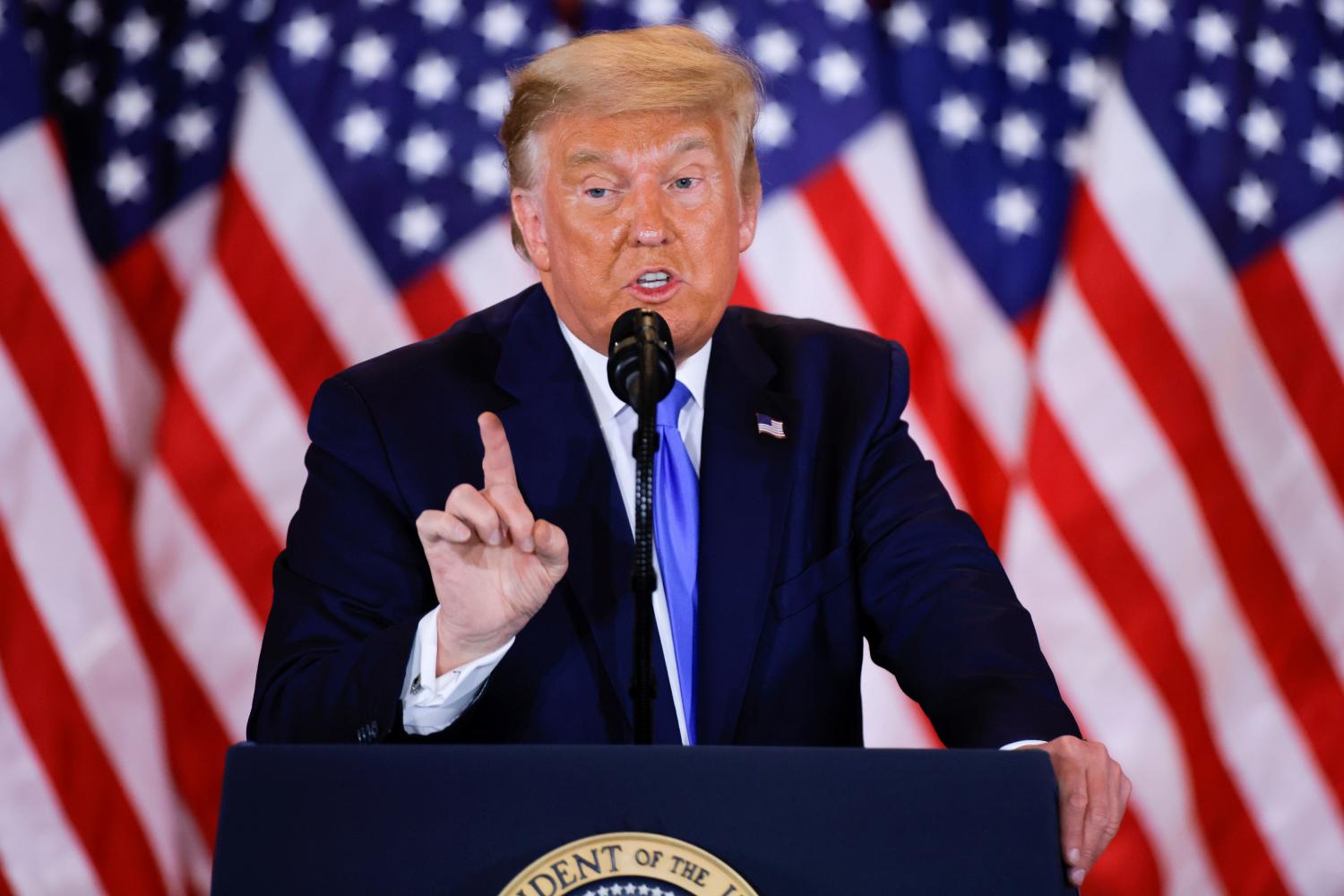
WARSAW—Prior to the election, polling in Poland showed that about 30 percent of Poles preferred Trump as president of the United States while the rest went for Harris. Despite the high levels of political polarization, the country’s main political rivals largely agree on the importance of supporting NATO, backing Ukraine, and resisting the threat from Russia.
The Polish national-conservative political movement (still strong despite the 2023 election loss) may agree with the Trump agenda on issues of culture and values, but some of its supporters are nervous about a possible US abandonment of Ukraine. There is a sense here that Trump may appreciate how Poland spending more than 4 percent of its gross domestic product (GDP) on defense makes it a leading example of what a NATO member state should look like. However, that won’t amount to much if Ukraine is overrun by Russia and if the United States, either frustrated over lack of progress with countries such as Germany or due to rising “Asia first” voices in the incoming administration, decides to turn away from Europe. Likewise, both political sides in Poland worry about the possibility of US-EU trade wars and tariffs that will hurt the Polish economy, Trump’s positive views of Poles notwithstanding. Supporters of the current centrist government also worry that Trump’s triumph will give a boost to populist movements all over Europe.
Optimists point out that Polish President Andrzej Duda enjoys a positive relationship with Trump that dates back to the 2016-2020 period. Duda will conclude his second term in the spring of 2025, though, and he cannot run again. The current Polish government, despite its strong anti-populist rhetoric, also has people, such as Minister of Foreign Affairs Radosław Sikorski, who have good contacts with the American right. “The American people have made a decision that we respect,” Sikorski said Wednesday. “The correctness of Poland’s foreign policy, which consisted of maintaining contact with both Democrats and Republicans, has also been affirmed.”
Some especially optimistic voices here point out that whereas Poland and the United States were good wartime allies under US President Joe Biden, the Democratic foreign policy establishment always saw Poland as a second-class partner and ran Europe policy mainly through a Berlin-Paris-London model. This approach did not fully appreciate how much Poland is now an anchor of European defense and not a mere security consumer. Such commentators hope that Trump’s inclination toward dumping conventional thinking may make the United States finally break away from seeing Western Europe as the only Europe that counts.
—Aaron Korewa is the director of the Atlantic Council’s Warsaw Office, which is part of the Europe Center.
The US-Australia alliance and AUKUS agreement have enduring support—no matter the heated rhetoric
CANBERRA—Like Americans, Australians were glued to television news and social media watching the outcome of the US elections. At the same time, the machinery of government in Australia ground on. As the results solidified around a second Trump term in the United States, the Australian Senate was holding defense estimates, capturing some of the first official responses to the US election results. At one point David Shoebridge, a far-left Greens Party senator, asked the Australian secretary of defense, Greg Moriarty, about ending the Australia-New Zealand-United States alliance and canceling the Australia-United Kingdom-United States partnership (AUKUS) now that Trump was guaranteed to win. Moriarty replied that strong support for the alliance and AUKUS in Australia will continue, as it has in the past, on a bipartisan basis. Soon after, a senior Labor Party source noted that the “Albanese government would focus on maintaining public support for the US-Australia relationship and keeping the alliance strong.”
)
These initial exchanges are reflective of how Trump 1.0 was dealt with in Australia, and they are a forerunner of things to come with Trump 2.0. Many of these exchanges will generate heat (especially in the media) but little light. The far left’s opposition to Trump does not reflect Australian government policy or public opinion on key policy issues. The alliance and AUKUS are strongly bipartisan, and they command deep public support.
Without a doubt, Harris was the preferred candidate among Australians. While public support for the US-Australia alliance was generally a bit lower during Trump’s first term than during the presidents who preceded and succeeded him, it still was at 78 percent approval when Trump left office. The focus once again will quickly turn to playing each issue or event on its own merits, rather than reacting exhaustively to Trump’s rhetoric. Former Prime Minister Malcolm Turnbull advised Prime Minister Anthony Albanese not to “suck up” to Trump: “If you actually want to get good outcomes . . . you’ve got to be able to stand your ground and make your case.”
A key issue in Australia will be the future of AUKUS. While I believe that a new Trump administration will support AUKUS, opinion polling shows that only 18 percent of Australians are confident that AUKUS would not be canceled by a second Trump administration. Along with AUKUS, Ukraine, the war in Gaza, China policy, climate policy, and tariffs are dominating the Australian public debate in response to the election outcome.
But there’s a domestic political lesson too. Inflation and cost of living pressures have been fatal to incumbent democratically elected governments around the world. Australian politicians ignore this lesson of the US election at their peril.
—Peter J. Dean is a nonresident senior fellow at the Atlantic Council’s Indo-Pacific Security Initiative, within the Scowcroft Center for Strategy and Security, and director of foreign policy and defense at the United States Studies Centre at the University of Sydney.
Amid their own turmoil, Germans’ fears are rising about the future of NATO
BERLIN—Fears about the United States stepping out of NATO have been renewed. Trump has long threatened to leave NATO if European nations do not pay their agreed share of defense spending. Although as of July, twenty-three out of the thirty-two NATO members are expected to meet NATO’s guideline of spending 2 percent of GDP on defense, Trump has continued to suggest that NATO membership is perhaps not in the United States’ future.
This has concerned Germans and the German government, whose increasingly fractious coalition has been rapidly preparing its budget for 2025. The constraints of the debt brake are looming over spending considerations. Last year some sixty billion euros evaporated from the federal budget, as concern over meeting existing welfare demands and pressure to increase defense spending have placed the governing coalition in a near-impossible position. Trump has long represented the threat of instability—a deep fear for Germans who prize stability above many other priorities. (And yet, despite this fear of instability, German Chancellor Olaf Scholz kicked Finance Minister Christian Lindner out of government on Wednesday, collapsing the governing coalition.)
The US election was seen around the world as a referendum on immigration and economic policy—issues that have also plagued Germany in the past year since the budget crisis. Germany will soon be reevaluating where it can turn for stability at a time when its own politics are in turmoil.
—Carol Schaeffer is a nonresident senior fellow with the Atlantic Council’s Europe Center and a journalism fellow with the Jain Family Institute.
Serbia’s president basks in Trump’s victory
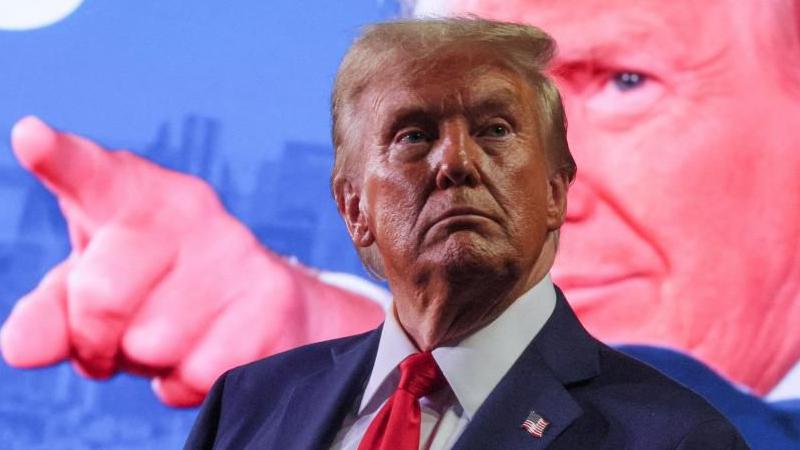
One of the most widely read Serbian tabloids, Informer, under the control of the ruling regime, announced the placement of fifty billboards in Belgrade, the Serbian capital, featuring a photograph of Trump after the July assassination attempt against him, with the message: “Congratulations, Trump, you are Serbian!”
In the few independent media outlets in the country and among pro-European citizens of Serbia, reactions were far more restrained, with a significant number greeting the news of Trump’s victory with apprehension due to the unpredictability of his policies, assessing that the world is entering a period of heightened uncertainty.
—Maja Piscevic is a nonresident senior fellow with the Atlantic Council’s Europe Center and representative of the center in the Western Balkans.

Iraqi Kurdistan worries about rising US-Iran tensions
SULAYMANIYAH—Iraqi Kurdistan government officials and party leaders congratulated and supported Trump’s victory. However, public reactions in the Kurdistan region and Iraq as a whole were mixed, especially since peace between Israel and Hamas is not on the horizon. The reactions primarily centered around two key concerns.
First, the potential impact on US-Iran relations could affect the region both politically and economically. The stability of currency exchange rates between US dollars and Iraqi dinars is of particular concern, directly impacting residents’ daily lives.
Second, there are widespread security concerns. Many worry that given the current tensions between Israel and Iran, Trump’s victory could escalate the situation into a regional conflict. This poses particular risks for the Kurdistan region and Iraq as a whole. Any US military action against Iran could trigger retaliatory strikes by Iran and its allies, potentially targeting US interests in Kurdistan. Some analysts predict the region could become a proxy battleground between US-aligned forces and Iran.
Despite these concerns, there is also optimism among some Kurdish people. They hope Trump will support Kurdish interests in Syria and facilitate peace negotiations with Turkey, particularly given his promises to end conflicts and promote stability in the Middle East.
—Sarkawt Shamsulddin is a nonresident fellow at the Atlantic Council’s Middle East Programs. He served as a member of the Iraqi Parliament from 2018 to 2021.
Questions around support for Ukraine and trade weigh heavily in Sweden
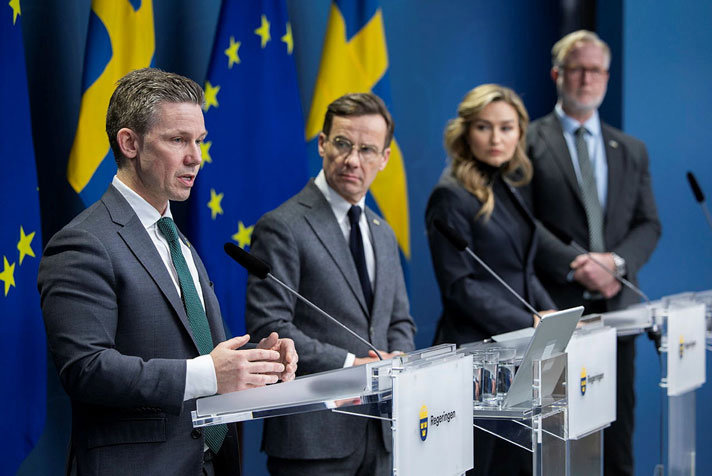
STOCKHOLM—In Sweden, media outlets are often accused of being obsessed with US elections. Indisputably, the news coverage of US elections by far outweighs that of European Union elections or elections in major nearby countries such as the United Kingdom, France, and Germany.
Another key feature is that overall, Swedes leans toward the Democrats. If Swedes could have voted in the US election, 90 percent would have voted for Harris. Among all of Sweden’s political parties—from the right to the left—only voters from the right-wing extremist Sweden Democrats prefer Trump, spurred by his tough stance on immigration.
Against this background, the official reactions in Stockholm on Wednesday were polite but somewhat cautious. On one hand, Sweden depends on the United States both for trade and security. It will need to cooperate well with the incoming president. Therefore, Prime Minister Ulf Kristersson and Foreign Minister Maria M. Stenergard quickly congratulated Trump and Vice President-elect JD Vance on the social media platform X, expressing their wish for friendly and close collaboration with the new administration.
On the other hand, a second Trump administration is perceived as carrying risks, which the Swedish government openly addressed on Wednesday, naming economic protectionism, a lack of measures to combat climate change, and a lack of support to Ukraine as top concerns. “No other question has the same existential importance to countries in our part of the world than Ukraine,” Kristersson underlined.
Opposition leaders from the Green, Left, and Centre parties expressed concern for the climate and for women’s rights under a Trump administration, while former Prime Minister Magdalena Andersson of the Social Democrats urged the government to immediately connect with key people in the incoming administration and try to persuade them of the importance of NATO, free trade, and support to Ukraine.
In the transactional world of Trump, Sweden would come to the table with a solid case for negotiations. As NATO’s newest ally, Sweden already spends 2.2 percent of GDP on defense and will reach 2.6 percent in 2028. On support for Ukraine, Sweden spends more than 0.83 percent of its GDP. In the United States, Sweden directly supports 379,000 jobs and indirectly an additional 620,000. Sweden is also the tenth-largest foreign investor in the United States, while its population is only the eighty-seventh largest in the world. Thus, together with NATO and European Union allies, Sweden should be well positioned to negotiate with the Trump administration on crucial issues.
—Anna Wieslander, PhD, is director for Northern Europe and head of the Atlantic Council Northern Europe Office in Stockholm, Sweden.
Southeast Asia sees continuity in the US-China relationship, with fears of escalation

SINGAPORE—In Southeast Asia, governments and local media did not express much shock or surprise at Trump’s election victory. Pragmatism prevailed, and Trump’s transactional approach to foreign policy does not worry the region’s leaders. With the possible exception of the Philippines’ security needs, there is no Southeast Asian dependence on the United States as that which exists in Europe or the Arabian Peninsula. For most of the countries in the region, the biggest foreign policy issue remains the evolution of US-China relations and their ability to keep good ties with both sides. During the campaign, there was a sentiment across most of Southeast Asia that there were no fundamental differences between Trump and Harris on the topic of China. At a policy level, there will be expectations for greater US military engagement, in particular among countries such as Thailand and the Philippines, whose relations with China have grown more contentious. But none of the ten countries in the Association of Southeast Asian Nations (ASEAN) is comfortable with the idea of an open confrontation, so the martial tone of Trump when he talks about China is still cause for concern.
Putting rhetoric aside, Southeast Asian countries will carefully monitor the policies of the new Trump administration on Taiwan, as any escalation there would have direct implications for Southeast Asian security interests. Developments in the Korean Peninsula are also likely to impact the region: Vietnam and Singapore previously hosted summits between Trump and North Korean leader Kim Jong Un. Since then, the situation between Seoul and Pyongyang has worsened, though it is unclear how Trump would respond to an escalation.
—Jean-Loup Samaan is a nonresident senior fellow at the Atlantic Council’s Scowcroft Middle East Security Initiative.
India sees uncertainty but also opportunities for trade

NEW DELHI—India’s reaction to the Trump victory has been largely positive and optimistic.
The US-India relationship deepened during Trump’s first term, like it has over the last three decades and through many administrations in New Delhi and Washington. Trump and Indian Prime Minister Narendra Modi developed a strong rapport, which enabled productive engagements. Both sides were also able to navigate occasional tensions such as Washington revoking India’s designation as a beneficiary of the Generalized Scheme of Preferences, which enabled duty-free imports into the United States.
Some of Trump’s priorities—especially involving trade and protectionism—are sources of uncertainty. But these uncertainties are also seen as presenting opportunities for mutually beneficial deals, particularly in the context of a likely ramp-up of tensions between the United States and China. New Delhi and Washington were reportedly even close to finalizing a mini trade deal during the first Trump presidency.
—Gopal Nadadur is a nonresident senior fellow at the Atlantic Council’s South Asia Center and vice president for South Asia at The Asia Group.
Ankara views Trump’s election as an opportunity to enhance US-Turkish ties
ANKARA—Many Turks feel a connection with the United States, and the talking points of the Trump campaign resonated with many in Turkey, particularly among supporters of President Recep Tayyip Erdoğan and supporters of the pro-Kurdish DEM party. Trump’s rhetoric highlighting a fight against the “establishment” aligns with pro-government sentiments in Turkey, as Erdoğan’s AK Party and its close allies assert that they carried out a struggle against a military establishment to take power. Turkey hosts millions of refugees and has successfully reduced their influx by building a wall along its borders. Therefore, Trump’s stances on migration resonate with many Turks.
Still, Turks are divided on the future of Turkish-American relations. Some critics highlight the turbulence in the first Trump administration and suggest that the new Trump administration will pose similar risks. Additionally, the Turkish opposition is concerned about a potential decline in US support for its political agenda.
On the pro-government side, expectations are high. The previously established working relationship between Erdoğan and Trump is seen as a potential avenue for addressing various bilateral issues. Many people in Ankara are hoping for a significant deal with Washington to resolve their disagreement over the US partnership with the People’s Defense Units (YPG), the Syrian branch of the Kurdistan Workers’ Party (PKK). The PKK has been designated as a foreign terrorist organization by both Turkey and the United States, and has become Ankara’s top security concern.
Ankara views Trump’s election as an opportunity to enhance the F-16 fighter jet sales finalized during the Biden administration and to explore ways for Turkey to rejoin the F-35 program. Turks anticipate increased defense cooperation, but there are concerns regarding geopolitical risks. Turkey appears to support Trump’s anti-Iran stance, but a second Trump administration’s strong backing of Israel might upset Ankara, which has expressed strong disapproval of Israeli actions following the Hamas terrorist attack on October 7, 2023.
—Ömer Özkizilcik is a nonresident fellow for the Syria Project in the Atlantic Council’s Middle East Programs. He is an Ankara-based analyst of Turkish foreign policy, counterterrorism, and military affairs.
Trump and Erdogan will get along, but unpredictability is a concern
ISTANBUL—After Trump’s election, Erdoğan was among the first leaders to congratulate the president-elect, and he expressed hope that global crises like “the war in Palestine and Russia-Ukraine war” would end. While Trump’s election was mainly seen by Turkish media as potentially easing leader-to-leader relations, his unpredictability causes concern within both pro-government and opposition circles.
Regarding ongoing wars in the region, many commentators agree that Turkey will probably offer to be a mediator as part of Trump’s efforts to end the war in Ukraine. But what’s received less attention is the security threat that a peace deal favoring Russia and allowing it to keep Crimea would pose in the Black and Mediterranean seas. Meanwhile, due to Turkey’s strong pro-Palestinian and anti-Israel stance, Trump’s expected robust support for Israel could create tension in US-Turkish relations.
When it comes to existing US-Turkish disputes, given the Republican majority in the US Senate and perhaps the US House, some Turkish media reports have suggested that Trump will have more leeway on issues such as the lifting of sanctions against Turkey, the delivery of US F-16 fighter jets, and the renewal of the F-35 deal, potentially strengthening his position in dealings with Turkey.
Perhaps the most important issue in US-Turkish relations is Syria, particularly US support for the Syrian Democratic Forces (SDF), which are led by the YPG, a group associated with the PKK terrorist group. While Trump could not fully implement his 2019 decision to withdraw US forces from Syria, there is an expectation in Turkish circles that under his administration, a withdrawal similar to the pullout from Iraq might be easier. On the other hand, many commentators argue that the escalation of violence in the Middle East, especially in Lebanon and Syria, and the risk of an all-out Israel-Iran war may push the United States to remain in Syria and to continue its support for the SDF. Some experts believe that Turkey has read this situation well in advance and that the governing coalition’s new “Kurdish opening,” which seems focused on domestic politics, is actually an effort both to prevent PKK violence within the country and to negotiate with the SDF, thus strengthening Turkey’s position in negotiations over Syria with other actors.
When it comes to bilateral economic relations, Trump’s protectionist policies, including the steel tariffs imposed during his first term, have already caused significant damage to Turkey. New tariffs, along with a potential trade war with China, could create tensions with Turkey, especially since Turkey seeks to diversify its markets and strengthen relations with South Asia and Southeast Asia through the Asia Anew Initiative, as well as its attempts to become a member of the BRICS economic grouping that includes China, Russia, India, and others.
While there is considerable discussion in Europe and the United States about Trump’s possible disengagement from NATO and the security of the West, this is not as widely debated in Turkey. However, due to the potential risks of such disengagement, we started to see a softening of relations between Turkey and Europe ahead of the US elections. For example, Germany approved large-scale arms exports to Turkey for the first time in years and Scholz met with Erdoğan in Turkey, where the sale of Eurofighter Typhoon jets to Turkey was one of the main topics of discussion. This could lead to stronger defense and security cooperation with European countries both bilaterally and within the NATO framework.




